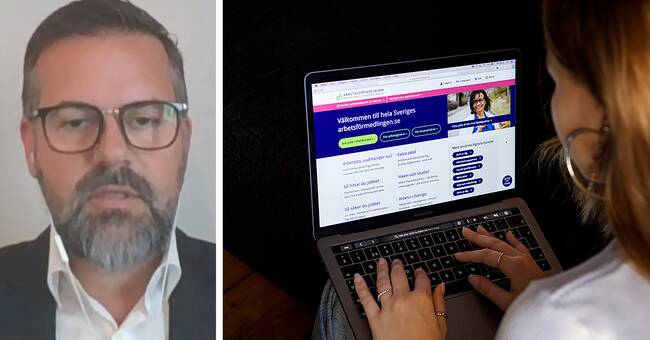When a jobseeker misbehaves, the Swedish Public Employment Service must send a message to the person's unemployment insurance fund.
This may, for example, be about not submitting your activity report on time or not applying for a job that the Swedish Public Employment Service has assigned.
If the applicant does not have a good explanation, the unemployment insurance fund can issue a warning or withdraw compensation.
(See fact box.)
Lack of controls
The employment service's lack of controls has been pointed out as a reason for incorrect payments from the welfare systems.
In 2017, the system was reviewed by the Swedish Insurance Insurance Agency, IAF, which assessed that lack of reporting caused incorrect payments of SEK 146 million.
Today, the figure would correspond to almost 300 million.
But in recent years, the number of messages to the unemployment insurance funds has skyrocketed.
According to official figures, the number has increased from an average of 13,800 a month in 2019 to 39,400 in the first four months of this year - almost a tripling.
The increase is also visible if one takes into account that unemployment increased during the pandemic year 2020 - and can be interpreted as having previously underreported errors.
- Yes and that is what the IAF has pointed out that we have done, says Arbetsförmedlingen's department manager Stefan Popovic to SVT.
"Reduced by about 75 percent"
More messages also mean that the amount of incorrect payments may have decreased.
An internal AF memorandum that SVT has read states that “Arbetsförmedlingen estimates that the authority's contribution to the incorrect payments has decreased by about 75 percent.
This means that Arbetsförmedlingen's contribution to the incorrect payments of unemployment benefits has decreased from 295 million to 74 million ”.
If the estimate is correct, the change has thus led to savings of over 200 million a year.
The Swedish Public Employment Service does not want to confirm the estimates in the report, and emphasizes that all assessments may be updated. But according to the report, the Swedish Public Employment Service will further tighten the application "which means that the risk of incorrect payments will in all probability be further reduced by the turn of the year 2021/2022".

